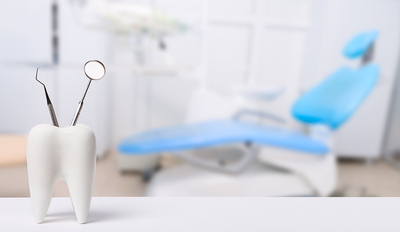
Dental health supports overall health and wellness. Unfortunately, many addicts suffer from poor dental health and its many consequences.
Substance abuse has many consequences. One that may go overlooked during recovery is dental health. Many people who struggle with addiction also have poor dental health due to factors including the effects of drug use itself and lack of proper dental hygiene and care.
Unfortunately, this can end up becoming yet another obstacle on the road to recovery. Here’s a closer look at the role oral health plays in supporting overall health and wellness in addicts and recovering addicts.
Dental Health and Addiction
Alcohol and drugs affect dental health in several ways. One example? Alcohol causes dry mouth by decreasing saliva production. This, in turn, makes teeth more vulnerable to decay. It can also lead to gum disease which is another major cause of tooth loss.
For alcoholics who drink to the point of vomiting, meanwhile, enamel erosion often occurs caused by tooth contact with acidic stomach bile. Alcohol even interferes with tissue cell division which can increase the risk of oral cancer.
Another common example of the effect of drug use on dental health is relatively well-known: “Meth mouth.” This extensive tooth decay and damage is a direct result of methamphetamine, which erodes tooth enamel.
According to an article published in Oral Health, substance abuse manifests in oral health for many other drugs, too, including cocaine, heroin, and marijuana.
Making Dental Health a Priority
Oral health supports comprehensive physical health in many ways. Research has linked teeth and gum disease with everything from heart disease to diabetes. Poor dental health can be especially problematic for pregnant women, who may be at higher risk of having pre-term, low birthweight babies.
And then there’s the fact that regular dental examinations also are an opportunity for dentists to conduct early screenings for oral cancer, a disease for which early detection is vital.
But poor dental health impacts people with substance abuse problems in other ways as well. According to Allan Clear, who heads up the Harm Reduction Coalition, poor dental health is “another piece of the stigma” associated with drug abuse and addiction.

A better smile — and brighter outlook — IS possible.
In addition to influencing how others see addicts, it also influences how addicts see themselves. “When you have teeth missing, or you look a certain way, or your teeth actually make you sound a certain way when you speak, it can do horrible stuff to your self-confidence,” Clear told Huffington Post.
This is an ongoing problem, even for addicts in recovery for whom appearance matters when trying to get a job and re-enter mainstream society. “In terms of all the strikes against you, if you have a history of drug use, addiction or prison, you really don’t want to have your physical appearance get in the way of getting back into society,” continues Clear.
And then there’s the fact that the better addicts feel about themselves, the less vulnerable they are to relapse. Brian Thompson’s story is one example. After having his teeth pulled after decades of drug addiction-caused dental neglect, he was offered free dental work by someone he met at an AA meeting. This experience changed his outlook — and his life.
“I look at myself every morning when I’m brushing my teeth and I think about how [the dental work] changed my life. Primarily, it’s changed my self-image. That’s the first thing people notice. What I notice is the confidence though. Often times, [people with addiction are] our own worst aggressors when it comes to image, that kind of stuff. We keep ourselves down,” Thompson told Huffington Post.
Recovering addicts should feel good about themselves. Unfortunately, poor dental health often stands directly in the way of their doing so. The good news is that better oral health is possible — but it starts with a commitment to recovery. St. Louis’s Harris House has been a leading addiction treatment resource for more than 50 years. Call us to learn about admissions today.







